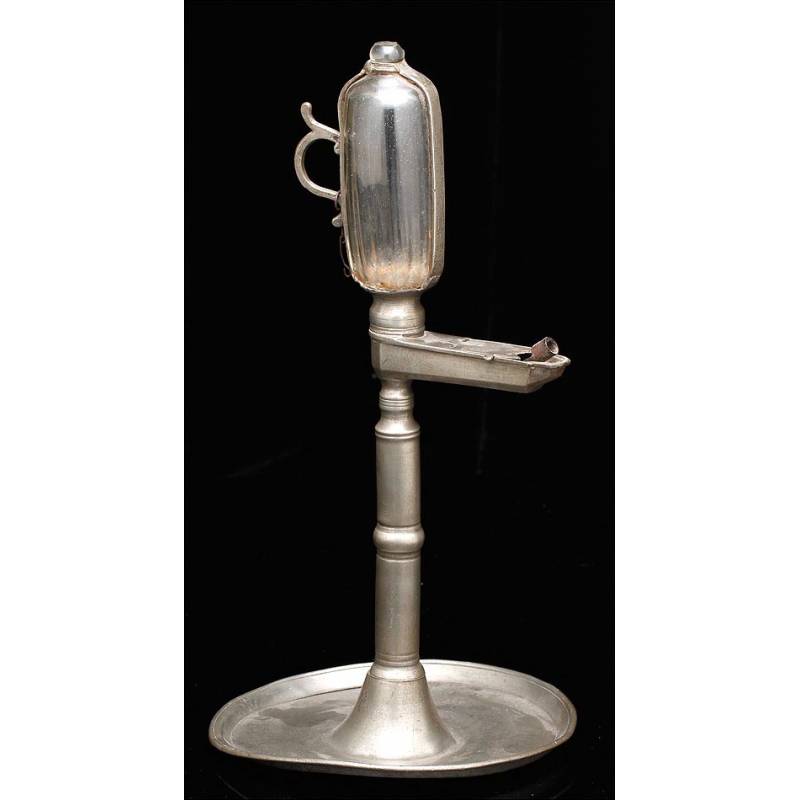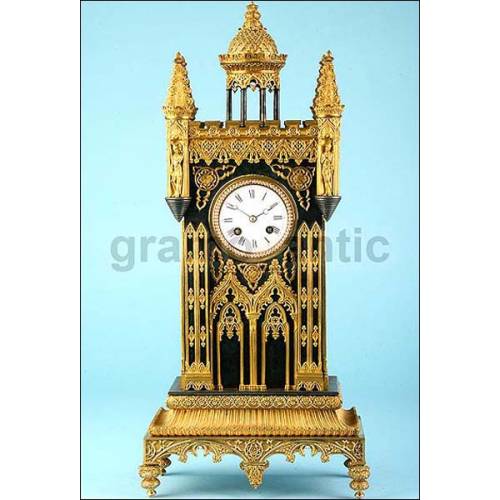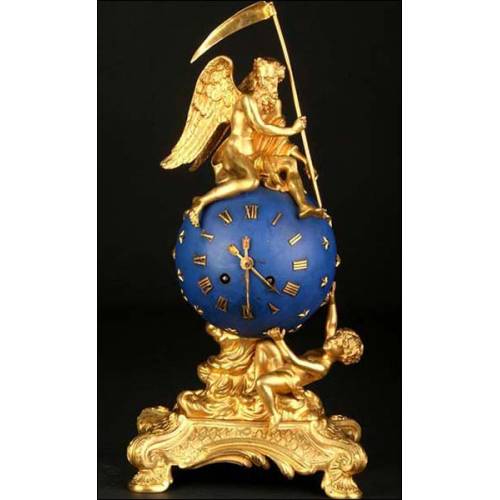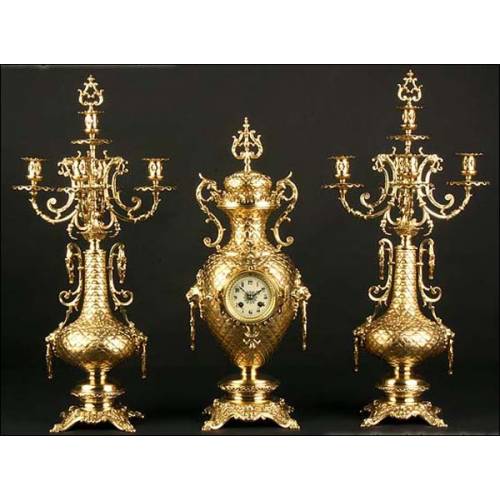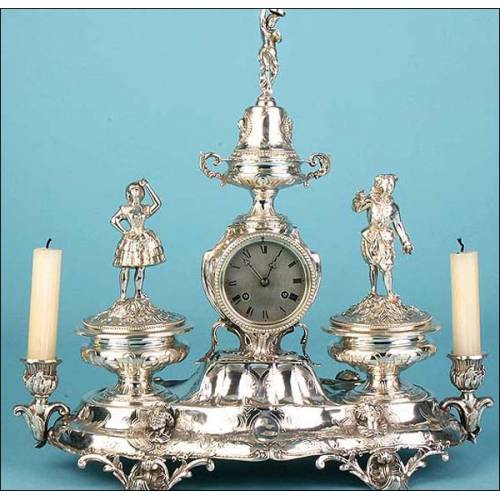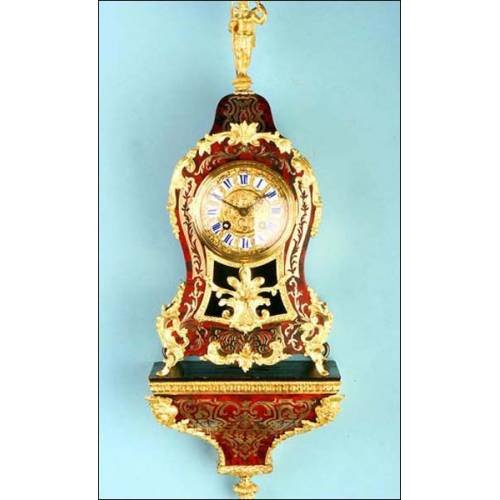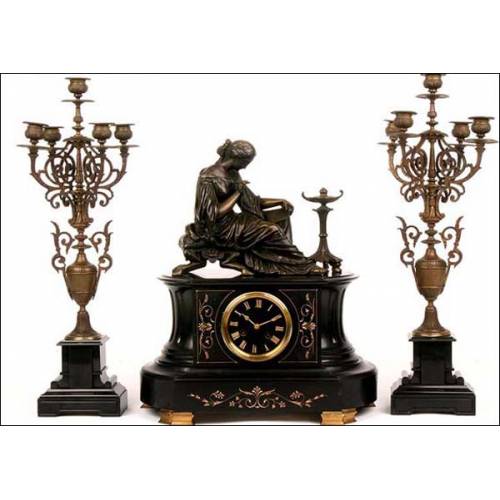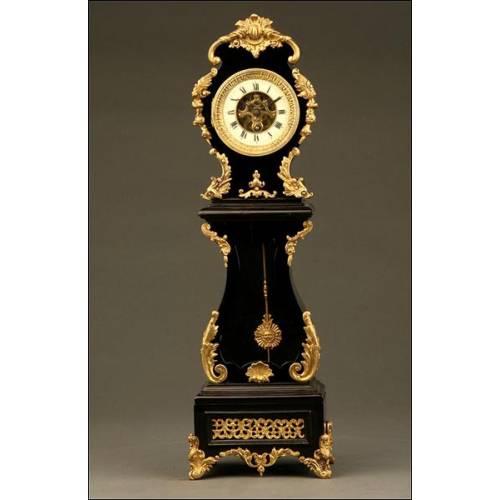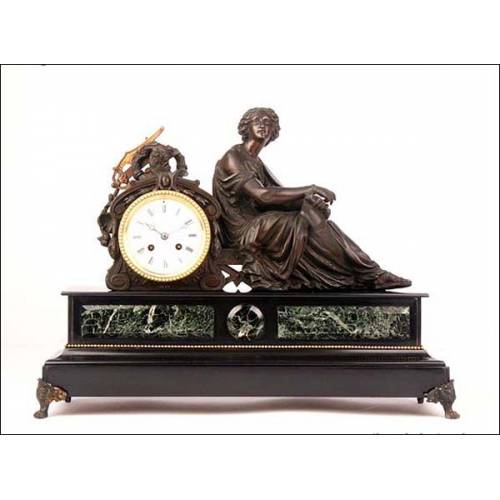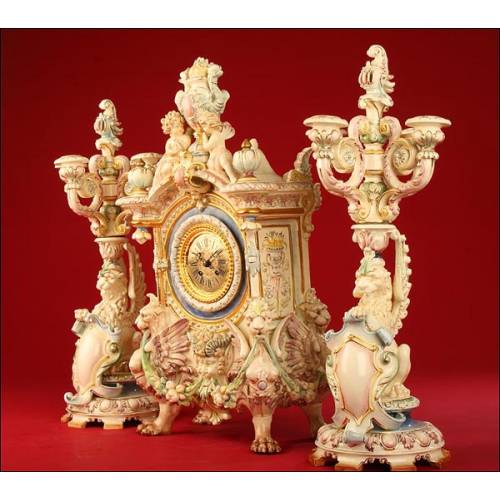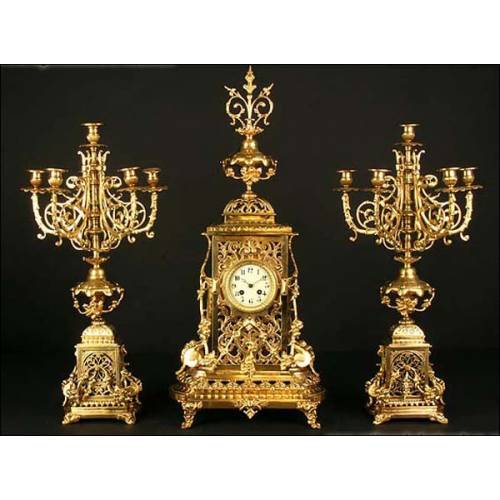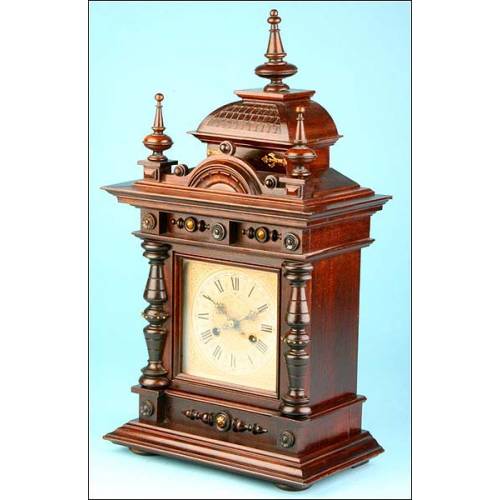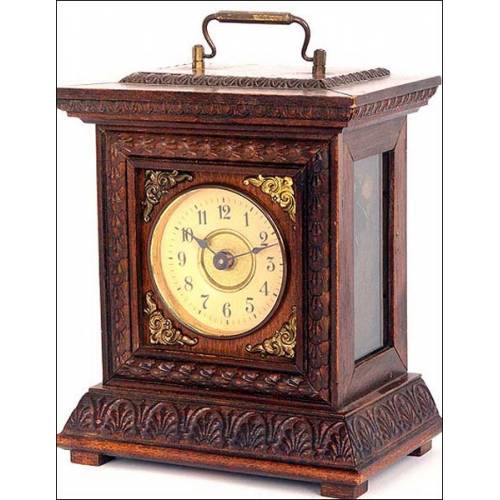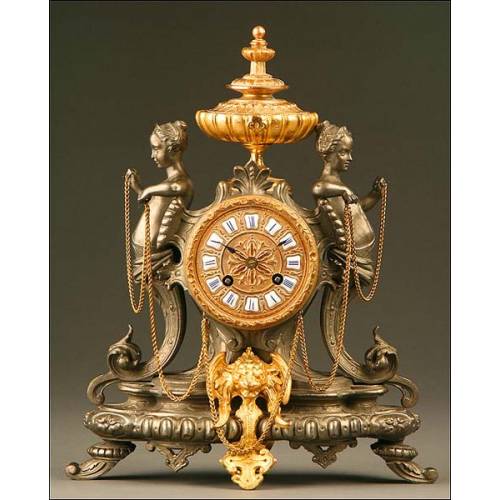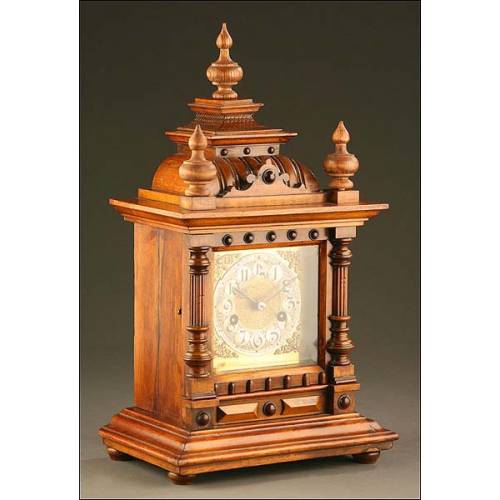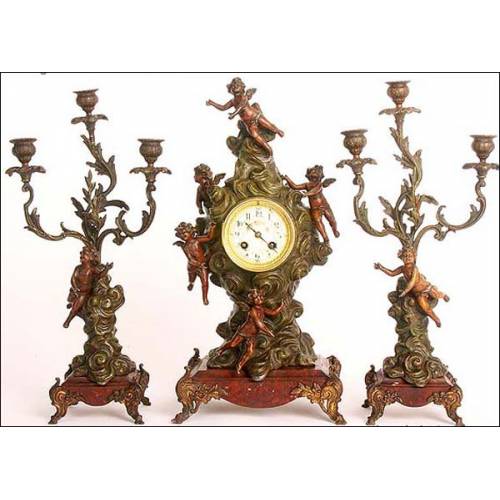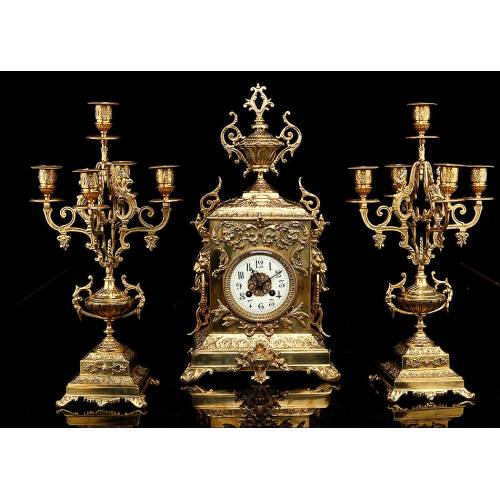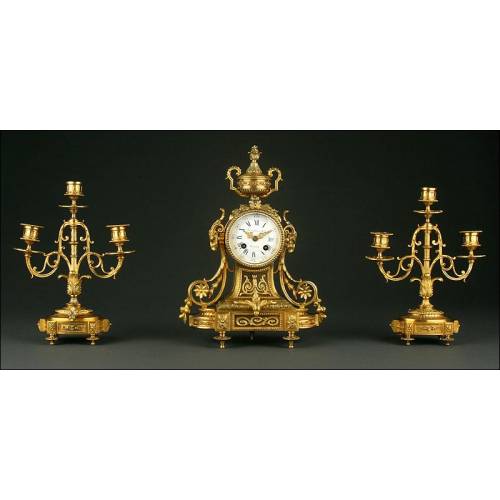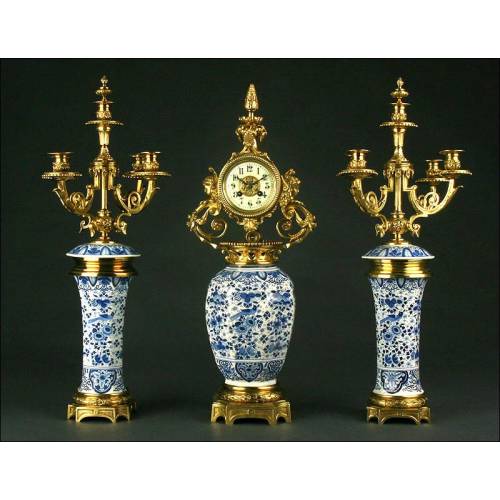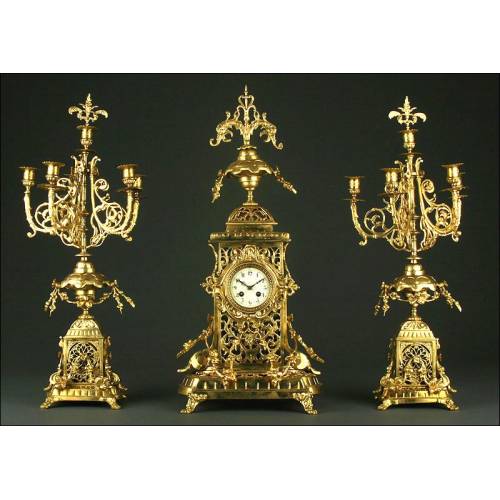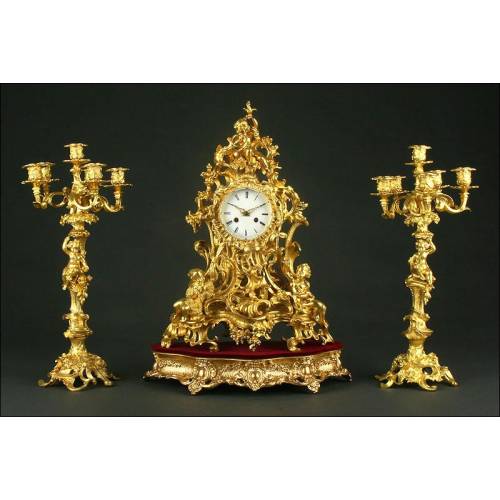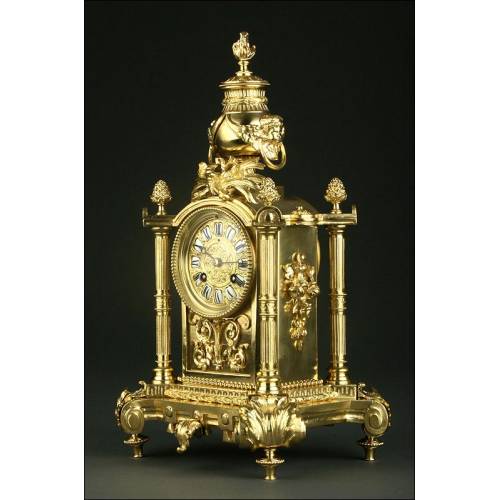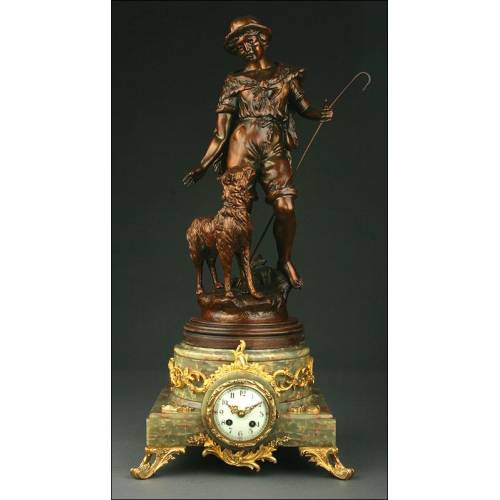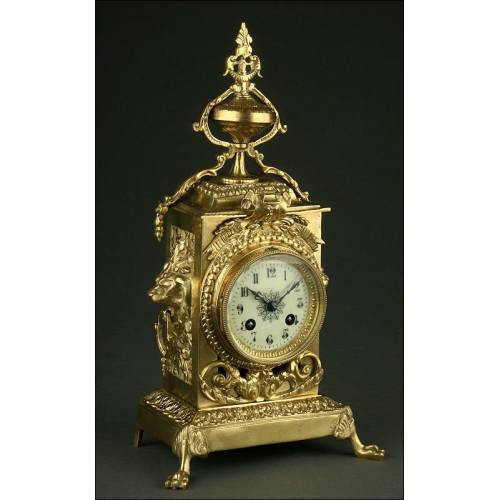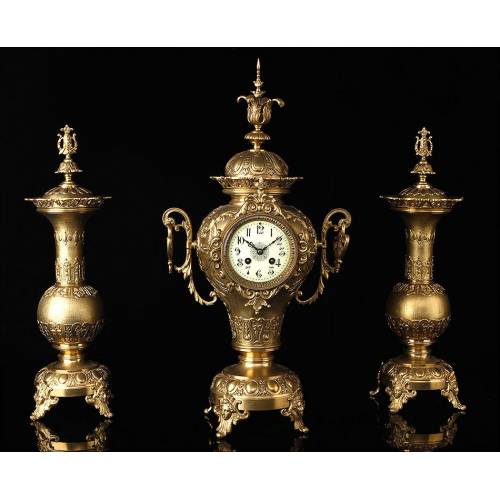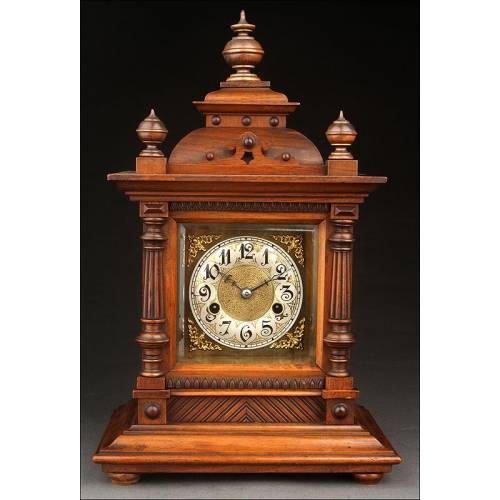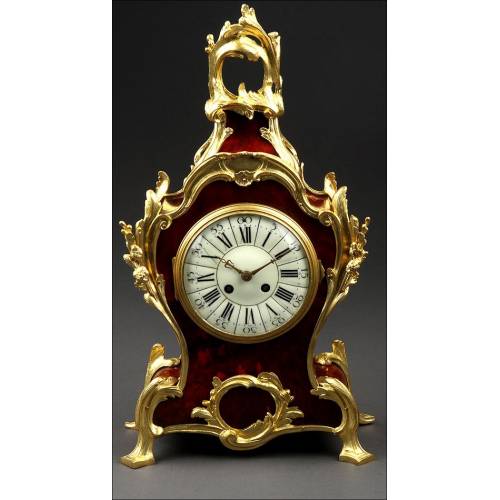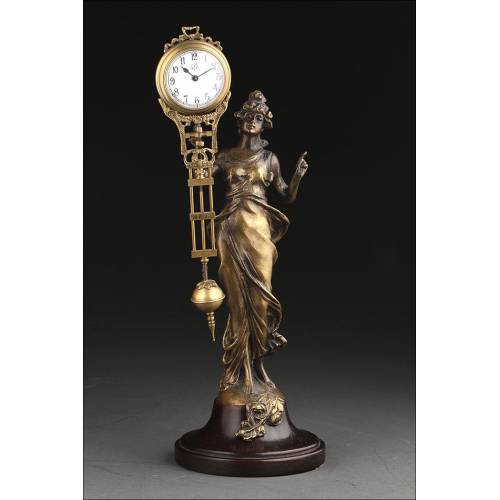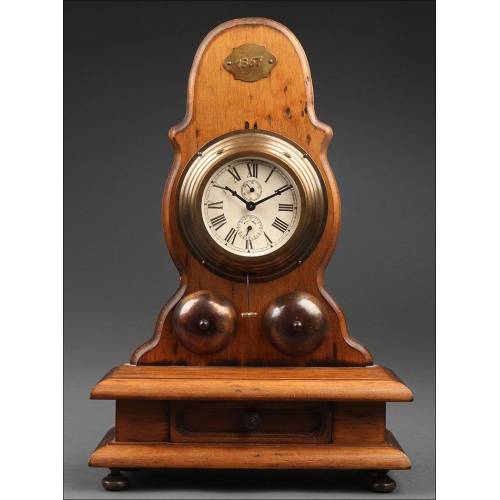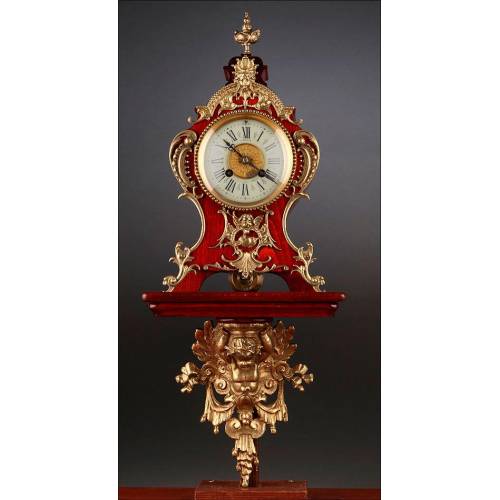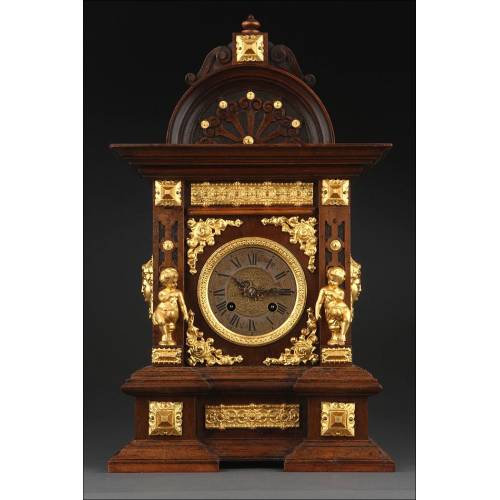C-111
Antique Oil Clock. XIX Century
Beautiful antique oil clock in a magnificent state of preservation. Original piece with a lot of charm. It is complete and works well.
Sold!
Attractive antique oil clock in very good condition. The clock is made of metal and glass and dates from the 19th century. The clock is made of tin like most of these clocks; it is composed of a vertical stem located on an ample circular base which prevents oil from staining the floor, table or any other surface. At the top the stem supports a glass ampoule and a platform for the wick. This is a really curious item with a remarkable decorative potential; it still can be used as it is complete and in fine condition. The glass ampoule located at the top of the clock is supported by a brass strip that surrounds it from top to bottom. At the top it has a small metal lid that can be removed in order to fill the ampoule with oil and start the clock. The brass strip bears a series of embossed Roman numerals; this way, as the oil level goes down it will point the time of the day. At the back of the clock there is a small handle to carry it, and at the front we can see a platform for the wick. Once lighted, the clock could fulfill a double task as it could also be used as an oil lamp. A charming and authentic piece, this antique oil clock will amaze everybody when used as a singular decorative item. Measurements: Width: 6.6 in / 17 cm. Height: 14.1 in / 36 cm.History of Clocks Oil Clock Historians consider sundials as the first clocks ever used. These mechanisms could not determine the time in cloudy days or during the night, so it became necessary to create a device that could tell the time without the intervention of the sun. Water clocks or clepsydras were invented by the Egyptians; they were already in use in the 1500 b.C. These devices were taken to Greece by Plato, and to Rome by Scipio Nasica. Soon after hourglasses (sand timers) were invented; one of the most curious examples was the one used by Christopher Columbus in his Discovery journey. This device was 1.50 meters high and emptied each half hour. Oil clocks derive from plug clocks, which are thought to have been invented by the British king Alfred the Great (849-899). They became very popular during the 19th century, mostly in homes with limited resources that could not afford a mechanical clock. They are also known as silent clocks for their absence of movement. They work in a very simple manner: the user must fill the deposit with lamp oil and light the wick. The fuel burns out and its level marks the time of the day through a scale. These clocks are not very accurate but make it possible to know the time of the day in an approximate way.

